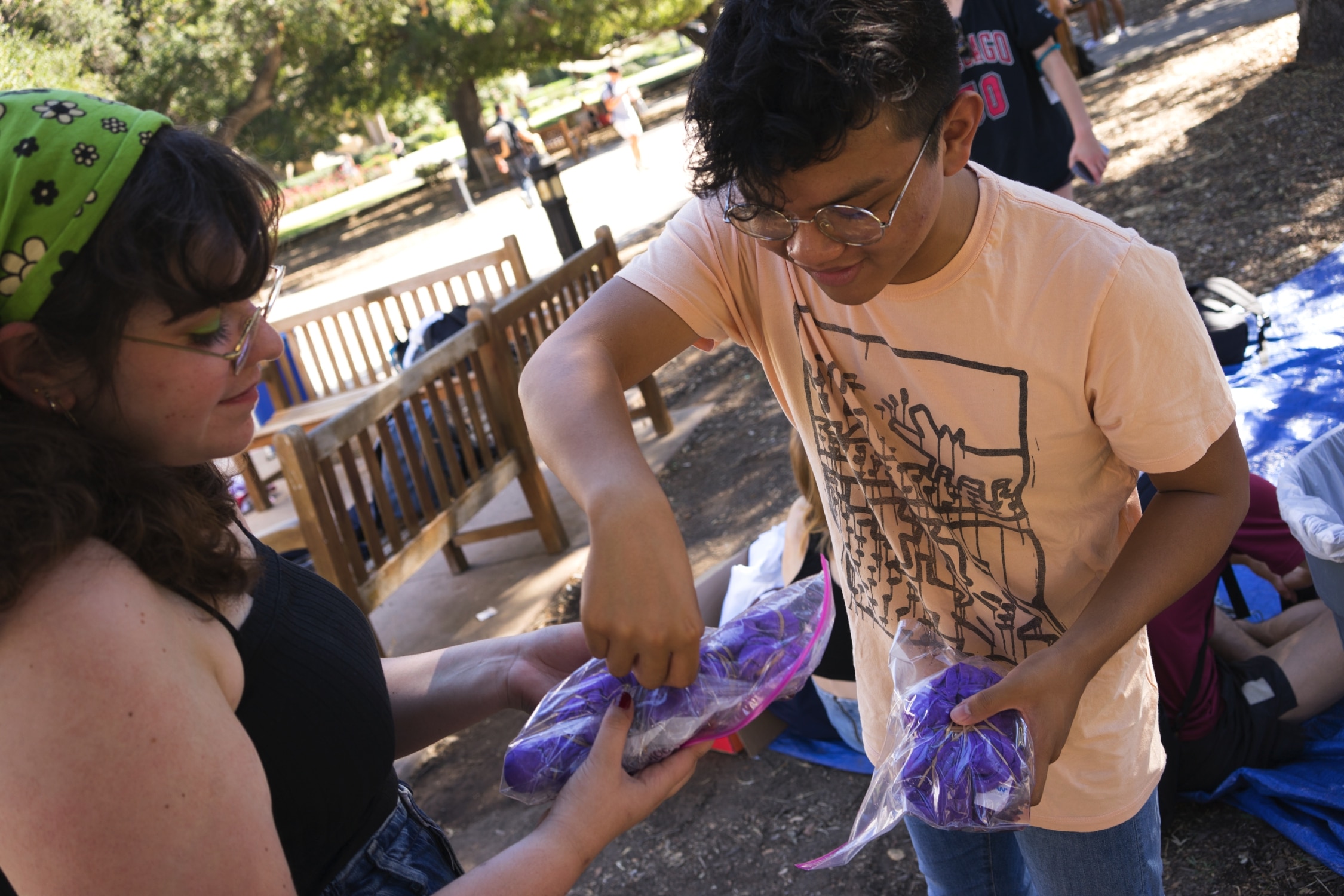
Empowerment Week — Project for a Sexual Assault Free Environment’s (S.A.F.E.) weeklong series of events designed to bring attention to dating and domestic violence during Domestic Violence Awareness Month — took place Oct. 24–27, mobilizing the Alpha Lambda Phi Alpha and Delta Omicron Tau sororities, Emmons Wellness Center, the Athletic Department, student clubs and volunteers, among others. According to Marianne Frapwell, Project S.A.F.E. manager and survivor advocate, Empowerment Week’s goals go beyond raising awareness.
“Empowerment Week is designed to raise awareness about, provide education around and create healing spaces for survivors of dating and domestic violence,” Frapwell said.
Project S.A.F.E. organized numerous events on campus, such as chalking in the quad, two healing workshops for survivors of trauma, a photo campaign and a keynote event about the intersections of immigration and interpersonal violence.
“All of the fall sports teams joined in and wore purple during one of their October games to support domestic violence awareness,” Frapwell said.

Frapwell said that Empowerment Week is largely the product of the programming assistants as well as Project S.A.F.E. Program Coordinator and Prevention Education Specialist Dana Michels ’16, who created the ideas for programs and fostered the necessary campus partnerships.
Sandy Pattison (junior), a Project S.A.F.E. programming assistant, organized a tabling event with the Alpha Lambda Phi Alpha sorority Oct. 25. According to Pattison, the tabling event focused on a photo campaign to raise awareness about different types of dating violence.
“My own goal for Empowerment Week was to put emphasis and awareness on dating violence and also drawing attention to the less overt ways of dating violence: intersections of technology and dating violence, like revenge porn and online stalking,” Pattinson said.
Payal Sinha, manager of Peace Over Violence’s Legal Advocacy Project, and Hannah Deyer, the rape prevention education coordinator at Peace Over Violence, delivered the keynote address “Immigrant Survivors: An Intersectional Perspective” Oct. 24. According to Peace Over Violence’s Legal Advocacy Project website, the project provides immigration information and affordable legal assistance to low-income residents.
According to Sinha, who has experience working on the ground with immigrant survivors in the L.A. area, immigrants face unique barriers to reporting sexual violence.
“People have been picked up from courthouses while trying to get a restraining order,” Sinha said.
According to Michels, the keystone address focused on legal advocacy for immigrants. She said that a case in which a U.S. Immigration and Customs Enforcement (ICE) officer arrested a transgender immigrant survivor when she went to court to request a restraining order exemplified immigrants’ plight.
“Since then, the rates of immigrant survivors following through with the DV [domestic violence] cases or cooperating with police has declined,” Michels said. “It’s important to learn about rights and recourse, how today’s political landscape is impacting survivors and how their identities and experiences intersect with violence and discrimination.”
According to statistics provided by Frapwell from the 2011 College Dating Violence and Abuse Poll — which Liz Claiborne Inc. commissioned Knowledge Networks to conduct — 43 percent of college-aged women report experiencing abusive behaviors in a relationship. The same report states that approximately 60 percent of all students say that abuse is difficult to identify and that they do not know how to help a friend they suspect is in an abusive relationship.
“We want to give everyone the tools to be supportive and to know their own rights in a relationship,” Frapwell said.
Frapwell said that current events, such as the Harvey Weinstein scandal, demonstrate the real-life implications of Empowerment Week’s themes. In October 2017, The New York Times and The New Yorker reported that more than a dozen women accused Weinstein of sexually harassing, assaulting or raping them; many other women in the film industry subsequently reported similar experiences with Weinstein.
“The Harvey Weinstein and James Toback cases, the #MeToo campaign and the current federal administration are all just high-profile examples of how sexual violence and the patriarchy are normalized and how privilege and power use sexual violence as a tool of oppression,” Frapwell said.
Frapwell said that these issues have always been important and do not subside when the publicity does.
“These issues are always present, and I hope that recent public attention will educate even more [people] in our community about how pervasive this violence is and create more spaces for survivors to feel heard and find healing,” Frapwell said.
Michels said that media coverage alone is not enough to improve issues of domestic violence.
“It is important to remember that sexual violence was happening before these cases broke and sadly will continue to happen after the media cycle moves on, so we must always fight to keep these conversations going to challenge rape culture,” Michels said.
![]()






























